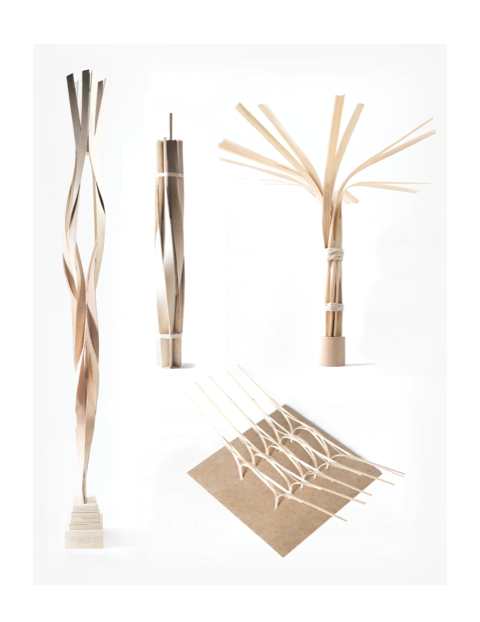2024 Recipient of the John Adjeleian Graduate Scholarship in Structural Design
March 19, 2024

Gerald Rafael-White is the 2024 recipient of the John Adjeleian Graduate Scholarship in Structural Design for his master’s thesis, Structured Roots, Fibres, and Flows: A Structural System Rooted in Cultural Anthropology, and Material Phenomena
“Gerry’s thesis demonstrates a high level of craft and structural invention, and is tested rigorously across scales, from the column prototype to the structural bay,” says a statement by the internal selection jury at the Azrieli School of Architecture & Urbanism.
“The wider positioning of structural concerns within a Philippine craft-based vernacular cultural context makes the research particularly noteworthy,” wrote the jury members. “The writing is critical and nuanced. Combined with visual supporting material, the thesis demonstrates a high level of competency of the subject matter.”
Rafael-White’s thesis advisor is Associate Professor Manuel Báez.
The $7,400 scholarship will be presented at the 2024 Adjeliean Lecture and Awards event on March 26.
The annual John Adjeleian Graduate Scholarship in Structural Design goes to an outstanding graduate student pursuing research in structural design and recognizes excellence in the art of structural design.
It is given in alternate years to students in the Azrieli School of Architecture & Urbanism and the Department of Civil and Environmental Engineering. Eligible students are in the first year of their thesis project.
The award also celebrates the professional accomplishments and academic contributions of Dr. John Adjeleian, Professor Emeritus of Engineering at Carleton University, who endowed the award in 2002.
Structured Roots, Fibres, and Flows
A Structural System Rooted in Cultural Anthropology, and Material Phenomena
Student: Gerald Rafael-White
Thesis Advisor: Manuel Báez
Abstract
This thesis investigates cultural artifacts and stories as offerings of intuitive knowledge that can inform innovative research, structure, and design. Weaving is a shared human experience and reflection on how we interact with the material world. Through such handcrafts, we have revealed and appropriated the potential of fibers when woven into patterned textiles and structured configurations.
Through such a weaving technique as the twirling of pairs of fibers, weavers imparted opposing interlaced forces into their fabrications with dynamic equilibrium. These principles are leveraged towards the development of an experimental structural system, incorporating the inherent properties of fibrous materials. Steam-bent plywood strips have been configured into fibrous columns that splay apart into beams that span across into woven structured spaces, offering a versatile context with multi-cultural resonant potential.